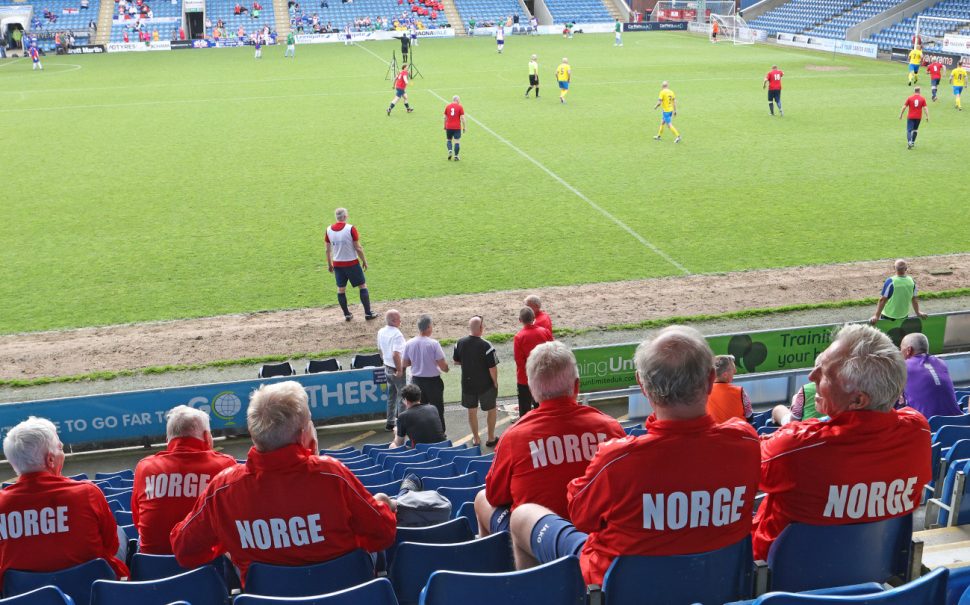Walking football has grown rapidly and kicked-off a new lease of life for thousands of people. But what’s the secret to its success?
Tommy Charlton always hoped to emulate his famous brothers Bobby and Jack and represent England at football… but not quite like this.
By his own admission, the 78-year-old never had the talent of World Cup-winner Bobby or Jack, a fellow England international.
But he has a strong passion for the game. Which is why, twice a week, the great-grandad turns out for Mature Millers to play a growing variation of the national game… walking football.
And when the first-ever international walking football match took place – England Over-60s against their Italian counterparts – Tommy was able to take his own unique piece of footballing history.
“I didn’t want to be selected because of my name or famous brothers, and people appreciated me for saying that,” recalls Tommy.

“I was more determined not to make a fool of myself and to get it right. I didn’t score but it was wonderful, absolutely amazing.”
Bobby and Jack were both still alive when he represented England in 2018.
“I’ve been proud of them all my life,” said Tommy, who has lost both his siblings in the last four years. “Bob was the best player in the world and Jack was in the team of the world in 1966 so it’s quite a target to match! And I just hope they were proud of me.
“Bob was very supportive and was involved in saying, ‘Be very careful.’ Jack was saying, ‘You silly old B!’ But I think Jack was proud as well, it was just the way he was.”
Tommy started playing walking football not long after it was established in 2010.
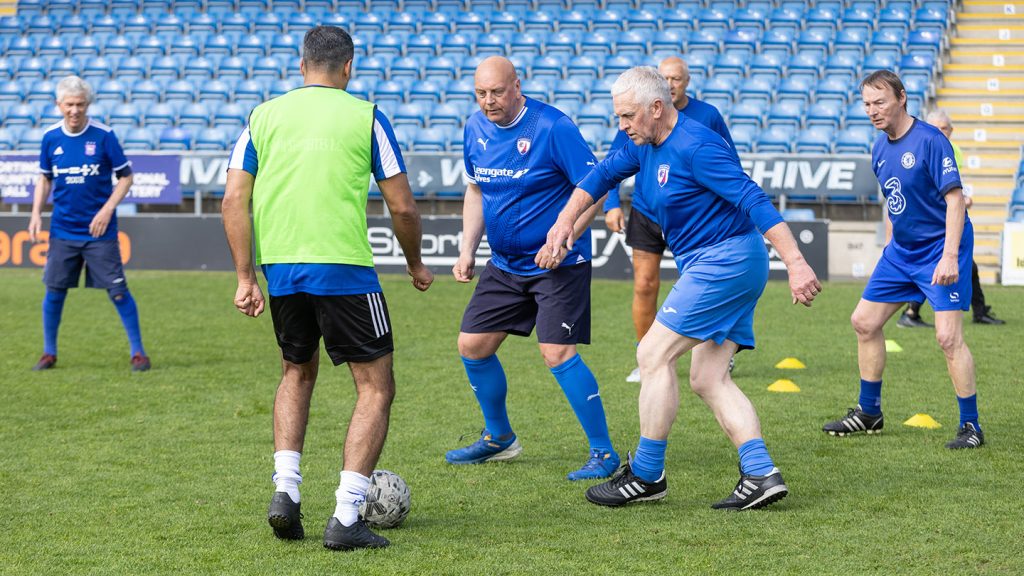
The brainchild of John Croot, there are now more than 60,000 players in England, primarily those aged 50 and above and often in leisure centres or on five-a-side pitches.
“I thought, ‘What’s the major barrier to those over 50? Running. So what about if we do it walking,’” said Croot, 59, who is CEO of League Two outfit Chesterfield FC.
He says some laughed when he told them his initial idea but its popularity quickly grew, fuelled by a segment on Sky Sports News and a grant from the EFL.
And the sport has grown in other countries, too – something which has been a huge surprise to the sport’s founder John.
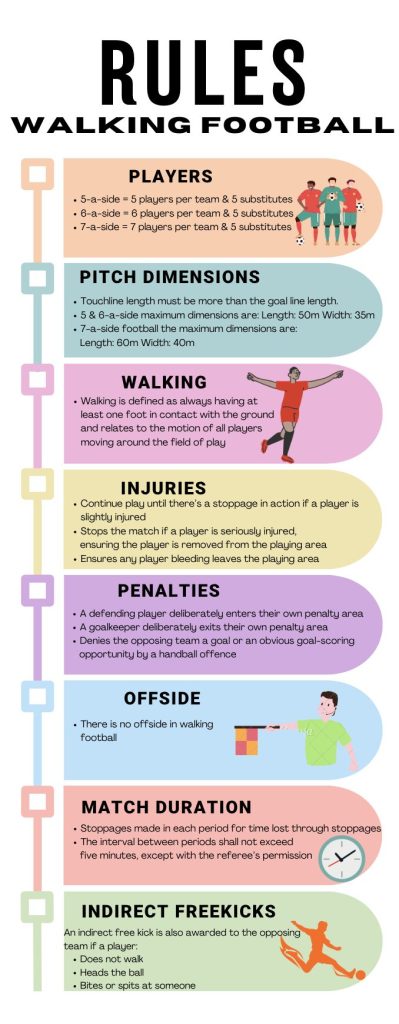
“In the last week I’ve been contacted by people from Singapore and Chile, asking me about the rules and enquiring about other groups,” said John. “In Malaysia it seems to be popular. It’s surreal – I wish we patented it!”
He says it has also been the catalyst for other walking sports.
“There is now walking netball, walking rugby and the NY Times said walking basketball is big in America – and all are derivative from walking football,” he added.
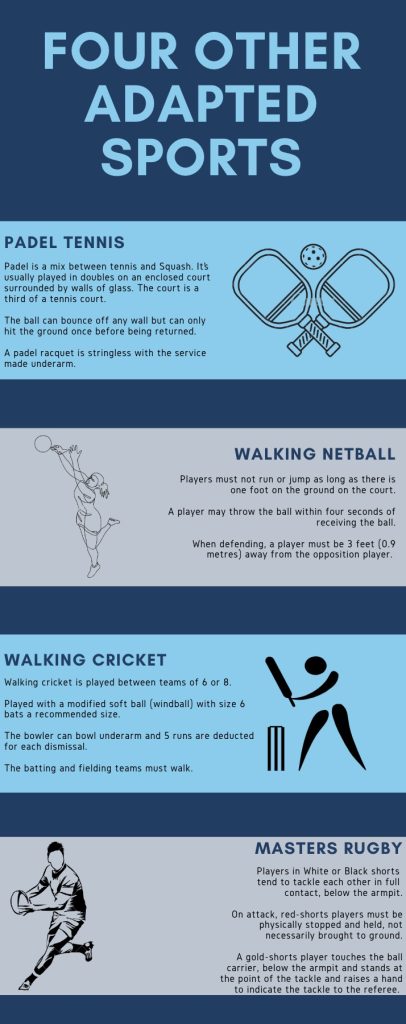
The reason for its popularity?
It offers people a chance to get together, keep fit and play a sport they love without the need for speed or the risk of injuries.
People like Mark Rice. The 58-year-old has been playing for two years and credits the sport with helping him during his own dark time.
“Walking football has helped me with bereavement I have had and keeps me going and keeps me strong,” he said.
“My mum, dad and brother have all passed away within the last three years and having this really helped me push through those difficult times.
“It’s not the fact it helps with dealing with the losses of others, the sport has many other benefits too.
“You can scream in there, let emotions out, relieve stress, it all helps so much.”
John Whittingham can relate. For him, walking football means much more than fitness and fun.
Having lost his wife to multiple sclerosis, the 74-year-old now faces his own health battle.
“Doctors found cancer in my prostate,” said grandad-of-two John, who will next week discover his course of treatment. “But I have to keep fit, I have to keep going.”
Which is why, every Wednesday he joins Mark at the Irlam and Cadishead Leisure Centre to play football. Football, without the running.
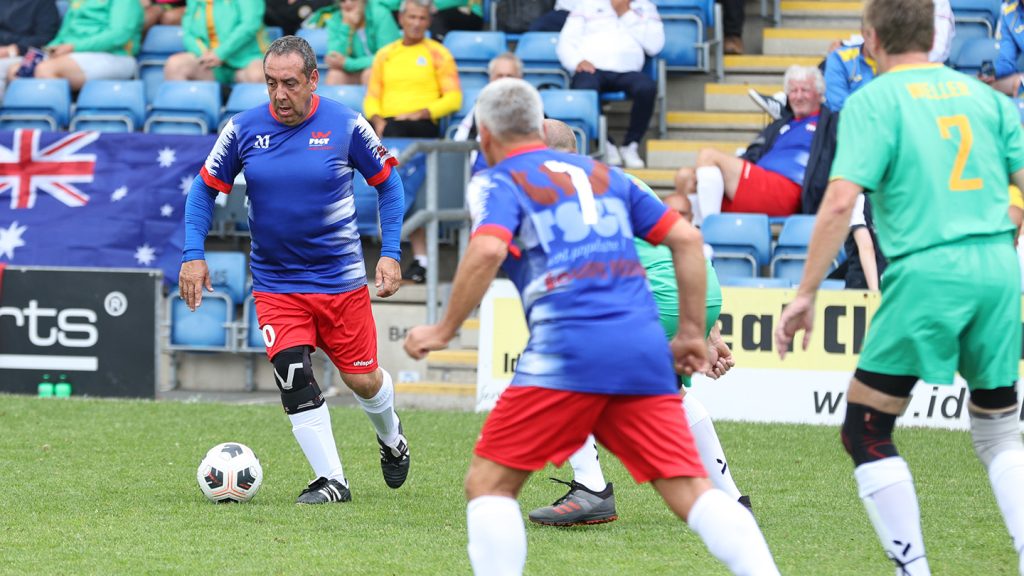
“First time I came down, it was because one of my friends had been mithering me to give walking football a shot,” he said. “But I got so much enjoyment out of it.
“There’s so many stories of other people too, I thought I was the only one… but from strokes to cancer everyone is fighting a battle.
“The sport has helped us all.”
People aged 50 and over are more likely to be lonely if they do not have someone to open up to, are widowed, or are in poor health, according to a report by charity Age UK.
One rule: you can't run! 😂 pic.twitter.com/QPrZxv8SzO
— Chelsea FC Women (@ChelseaFCW) March 18, 2023
And walking football’s slower pace can also help those recovering from, or living with, illness or health conditions.
Jennifer Gardner, Associate Director for Stroke Association in the North West, said: “I’m really pleased that some of the people we support go on to play in the walking football teams in Greater Manchester.
“In addition to exercise supporting people to recover from the effects of stroke, physical activity also reduces the risk of having another stroke.
“Regular exercise including walking, and sporting activity, can improve strength and stamina, and the social interaction which often comes with sport, can help beat the isolation and loneliness associated with stroke.”
In walking football, players must have one foot on the ground at all time, the ball can’t go over head-height and there are no offsides.
Tommy Charlton said: “I’ve played against some professionals and they find it difficult not to run and to not play the ball over head height.”
But the goals, and the celebrations, are just the same.
John, the sport’s founder, added: “One of my friends said to me, ‘I’ve not played for years, but when you score a goal, it feels the same at 80 as if you’re eight.”
Feature image courtesy of Tina Jenner
